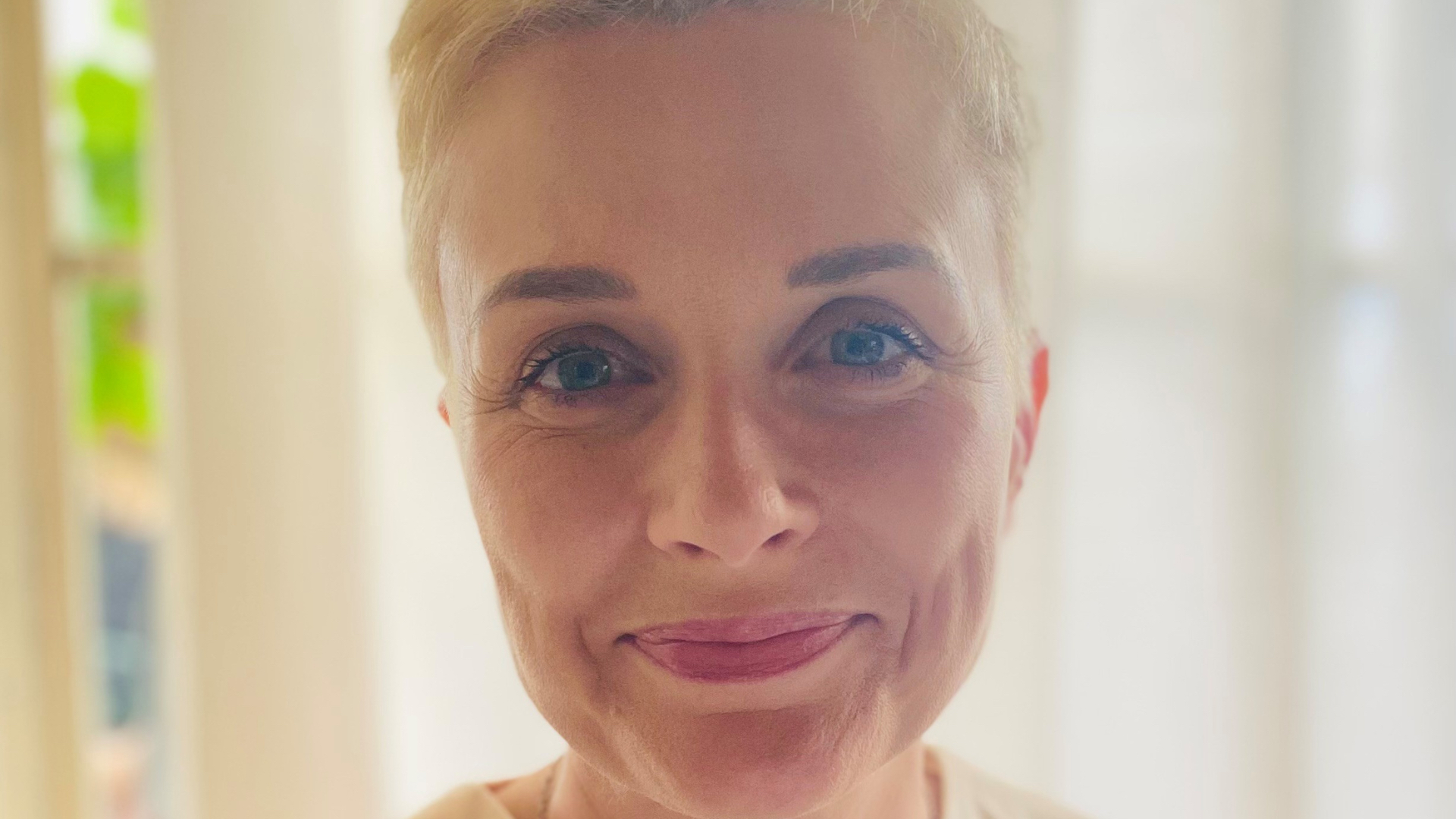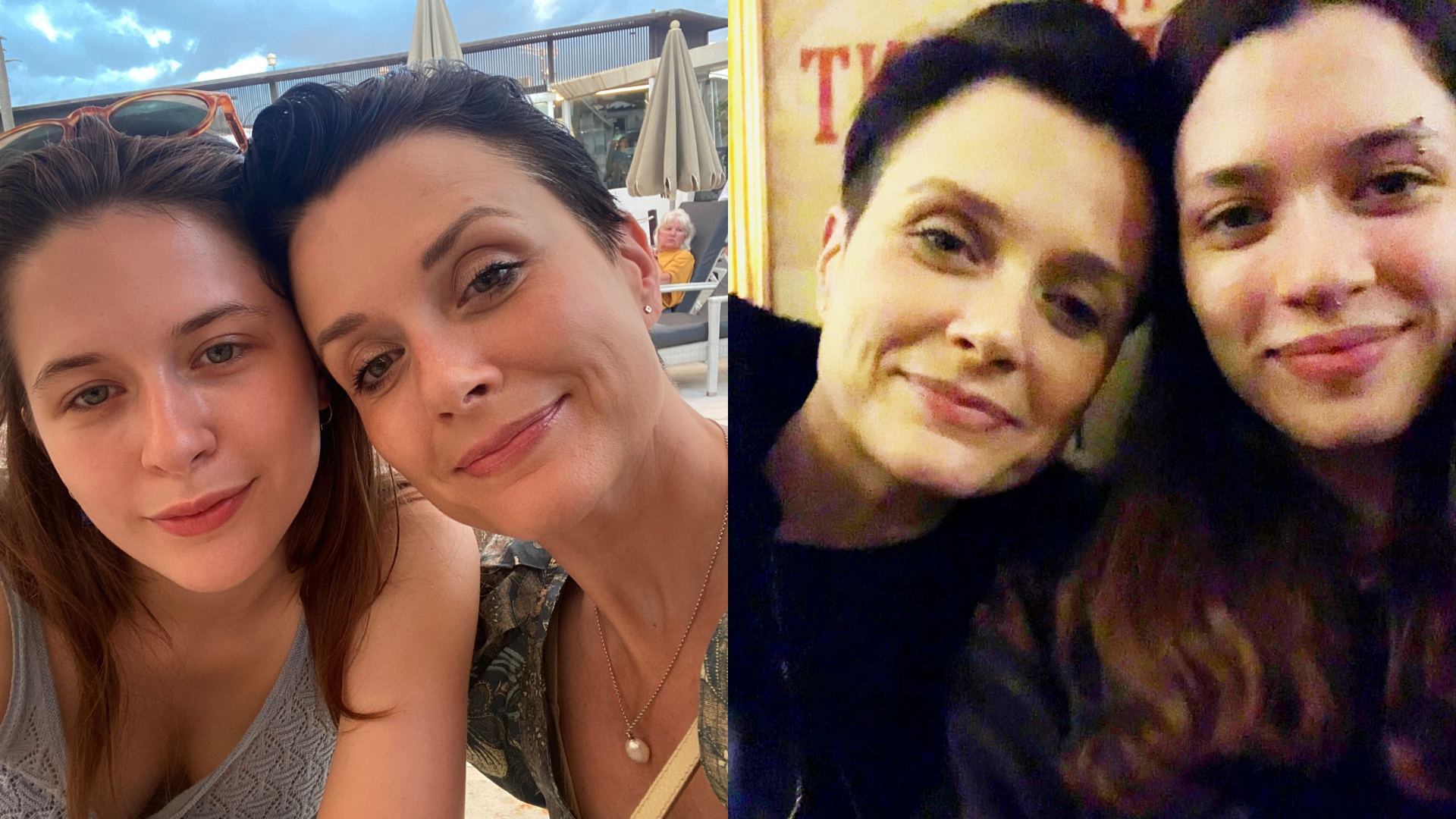
Kate Wilson was diagnosed with advanced ovarian cancer at the age of 43 and discovered she was carrying a BRCA gene mutation. She was prescribed a targeted drug called olaparib and five years on the cancer is stable. Here she explains why, thanks to new treatments, advanced cancer patients like her are navigating a new landscape, one where the language we use has yet to catch up.
I was diagnosed with ovarian cancer almost by chance. In 2019 I was happily working in London, after nearly two decades in the film industry, including ten years in Hollywood working with actors such as Jodie Foster. Outside of my job, I loved spending time with my family, including my two daughters Ruby and Olive. I’d had a health scare with pain behind my hip bones, but was told it was caused by two large but benign ovarian cysts. My mother had died of ovarian cancer at age 48 after six years of treatment, so I was still concerned.
Give the gift of research and help more women with cancer live longer, better lives. Please donate today.
At that stage I wasn’t eligible for testing for the BRCA gene mutations that puts you at increased risk for breast and ovarian cancer, despite my mother’s diagnosis. BRCA 1 and 2 drastically raise one’s chance of developing breast and ovarian cancers, but with only one family member diagnosed with either disease, I wasn’t considered a high risk.
A year before I’d been working in Los Angeles when I met up with an old friend who urgently needed a kidney transplant, and straight away I knew I wanted to donate one of my own. Part of the reason had been that I wanted to celebrate my own good health news, and tests showed we were a match.
In January 2019, I flew to LA for the operation, but alarms were raised when the transplant surgeon reviewed my CT scan. I was sent for further testing and told I needed to find an oncologist with whom to share the test results. The transplant was cancelled.
‘I had to have major surgery’
The next few months were a whirlwind. I discovered I had BRCA 1, raising my chances of developing ovarian cancer to 65 per cent (from 2 per cent) and breast cancer to 89 per cent (from around 12 per cent). Another scan identified a lesion on my lung, and I was diagnosed with stage 4 ovarian cancer.
Major surgery included a full hysterectomy, removal of the ovaries and fallopian tubes, removal of the omentum (the fatty tissue around the organs) and parts of the bowel and rectum. I had a short break before starting on chemotherapy, which was exhausting. I had an IV infusion every three weeks, six in total. I was okay for a couple of days, unwell with nausea and muscle pain for the next week, then experienced euphoria as I started to feel better. I lost my hair, but embraced my new radical, bald style and had my eyebrows microbladed (a semi-permanent makeup technique that makes brows look fuller). I kept working and arranged as many social activities as possible on days I felt my best.
Then I was lucky to be one of the first UK women to be prescribed a two-year course of olaparib, a new targeted drug that dramatically improves survival for women with ovarian cancer and a BRCA mutation. While I responded well, the combination of surgery, chemo and the new treatment, plus overnight surgical menopause, left me depleted.
‘I needed to be mentally strong’
At least with chemo there was a timescale of feeling terrible, but then improving – with olaparib I did experience side effects such as muscle pain and bowel pain, but unlike the chemo there was no prospect of feeling better for at least a while during the two years I was taking the drug. I needed to be mentally strong to get through that. I’ve also been left with advanced osteoporosis as a consequence of my treatment.
Having said that, I really do believe that the reason why I'm alive today is because of olaparib. I was in very much the same position as my mother, and, of course, she had no way of knowing about her BRCA status and didn’t have access to olaparib or any targeted treatments. I sometimes think about my ancestors, women with ovarian cancer, who just had a bit of abdominal pain, maybe, and then died extremely quickly. Thank goodness that's not what's happening to me.
And thank goodness that won’t happen to my children. Neither of them knows if they have the BRCA mutation, but they're 17 and 20, and they will be tested probably in the next few years, when they're ready. It's their choice, but they'll be able to be completely proactive about their risk, which really does make you think we are making huge strides.
I believe it's important that we figure out a different language for talking about managing a long-term cancer diagnosis, and also what that means in terms of disability and mental attitude.
‘Many labels about stage 4 no longer apply’
I’m still officially stage 4 and there are more of us living long term with advanced cancer. My cancer is stable, I've just hit my five-year mark, and but it’s prompted me to have a bit of a change of mindset.
There are so many labels that come with a stage 4 diagnosis, but many no longer apply.
I do think the staging needs to be recognised, but it's not actually about an individual experience. Nobody is a statistic. We need collective social responsibility we have to look at people in a different way.
When I was 43 and diagnosed, I thought, well, I might not live very long, and what changes do I have to make to my life, what do I have to left to do?

I know people who have been told to get their affairs in order, they go out, live their lives and embrace everything, and then find themselves five years down the line thinking ‘Maybe I shouldn't have spent every penny that I have!’
Adjusting to making longer-term plans can be almost as frightening as having to cancel them. I’d become comfortable with the idea of a curtailed life. I'm pretty sure that there's a really lovely world where the two elements of making the most of every day and embracing the future go together.
Quality of life is important. I've recently been to my GP to ask for support with post-surgery pain. Now I am willing to consider the possibility of a longer life, I'm not really prepared to just grin and bear it.
I am due back in plastic surgery to have my reconstructed breasts completed. There is so much to be grateful for, not least my wonderful daughters and friendships. I hope I will be around for long enough to celebrate their milestones.
They have busy lives and I savour every moment they spend with me (and my friend Scott found a new kidney donor, which is great news!).
Now my priority is to be in kind, generous, funny environments, with people I care about. I’ve published my first novel, Prospects and am writing a television show and a screenplay. I’m 48, and have a huge amount left to contribute.
It only takes a moment to make a gift, but the impact of your donation can last a lifetime. Please donate today to help more women with cancer live longer, better lives.